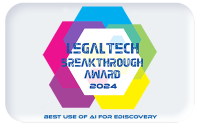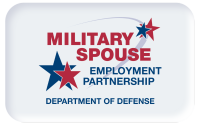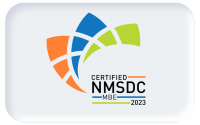 At TCDI, we have been doing remote review for three years now and we have the service, technology and process pretty down pat. Over the last few weeks, I have been watching emails hit my inbox, articles surface online and postings hit LinkedIn about a bunch of other review companies partnering with Secure Review, or other companies like it, to offer remote review themselves. All of these various emails, posts and articles have focused almost entirely on the security element of remote review and on how to protect data.
At TCDI, we have been doing remote review for three years now and we have the service, technology and process pretty down pat. Over the last few weeks, I have been watching emails hit my inbox, articles surface online and postings hit LinkedIn about a bunch of other review companies partnering with Secure Review, or other companies like it, to offer remote review themselves. All of these various emails, posts and articles have focused almost entirely on the security element of remote review and on how to protect data.
And I get it. After the EDD data breach scare from March (remember that?), everyone is hyper-concerned with making sure data is protected, as they should be, totally. But data security is only a single facet to providing a good remote review service and honestly, if you’re already an MDR or EDD company, that should be the easy part. Shore it up, document it and move on with protecting data as usual.
What these companies really need to be focused on is how to manage a review project when everyone is in their own location. How do you communicate? How do you create coding consistency? How do you make the review team feel and act as a team? How do you crowd-source coding decisions the way you would if everyone is in the same room? And how do you provide QC feedback and give 1:1 attention to those who need it?
Managing remote teams is very different from managing onsite teams and people need to start acknowledging that and changing their processes to account for those differences. Interviewing and onboarding, accessing review platforms, tracking reviewers, training and disseminating ongoing information, team size, roles and responsibilities, how, and how often you communicate, all need to change when you offer remote document review.
Like real estate has their adage – location, location, location – remote document review has its own adage – communicate, communicate and communicate! I know from my experience over the last three years that you can’t just keep doing things the way you always have and hope for good results. In remote review, how you communication is as important as what you communicate.
There is a lot of flexibility in remote document review (extended days and weeks, unlimited resources available, increased foreign language capabilities) but one area we cannot be flexible is to allow for a lone wolf reviewer. Lone wolves are created when MDR companies are not focused, or don’t know how to create a team environment in a remote setting. Under communicating, only relying on email or phone calls, letting reviewers do their work in a vacuum – these are common pitfalls when companies first launch remote review. And a lone wolf, doing their own thing, not aligned with team goals, will create a lot of problems in achieving a good outcome in a project – wasted time, rework, over-inclusion or exclusion of Responsive and Privilege docs, just to name a few.
Communication with your clients, and other stakeholders of the review, also needs to change. Increased communication is necessary here as well, both with the client and from the client. In a remote team setting, feedback and scope changes need to be shared with the team in real-time and that definitely poses a challenge with a remote team. Transparency of process and status needs to dramatically change in order for the client, and their counsel, to guide the team as necessary and feel comfortable they are getting a great review product from the team.
Data security is very important in remote review, but let’s make sure that we are all also maintaining close-knit teams of reviewers who are each actively engaged as part of a team and working towards team goals. Without this focus, you literally just have X number of reviewers, spread out across the US or the globe, doing their own thing. No amount of QC in the world will make that a cohesive review set.
Increased communication, coupled with different processes and collaboration strategies, is where the conversation has to move to around remote review going forward. I’d like to see more postings and emails from Review companies about how they are solving the remote team challenge!
Security is about more than just technology, it’s about people too. The human element to security can often be the most vulnerable, so vigilance is necessary in team building and team management as well. To find out more about the approach we’ve created to ensure we maintain the team structure, please reach out!





